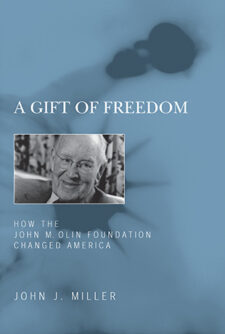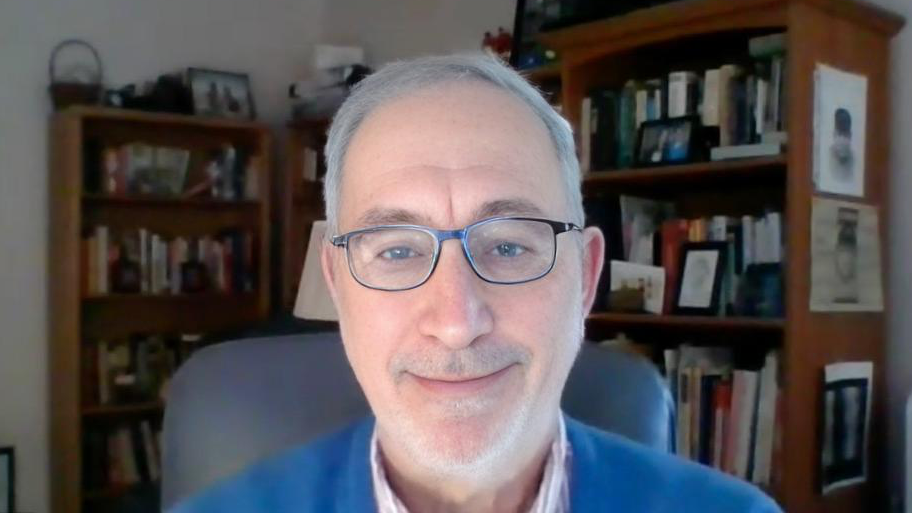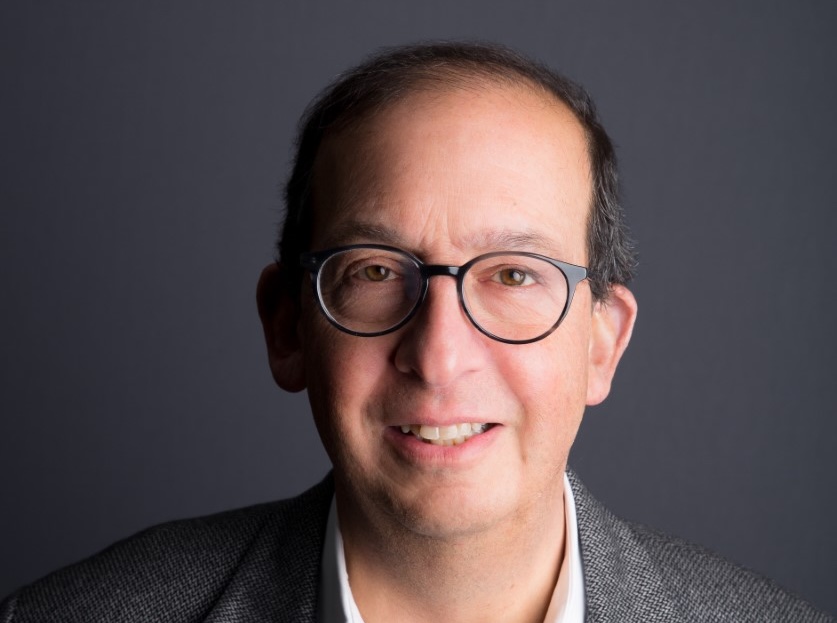Fifteen years after publication of his book on the John M. Olin Foundation, its author talks to Michael E. Hartmann and Daniel P. Schmidt about Olin himself, his decision to “sunset” the foundation, the reasons for its success, and whether—and if so, how—other conservative givers could replicate that success now and in the future.
John J. Miller is a storehouse of knowledge—which he’s good at, and always enjoyably good-natured about, sharing. Miller directs the Dow Journalism Program at Hillsdale College in Michigan, where he’s from and for whose teams he proudly and passionately cheers. He also founded the Student Free Press Association, which publishes The College Fix.
Miller is national correspondent for National Review and regularly contributes to The Wall Street Journal. He hosts two National Review podcasts, The Great Books and The Bookmonger.
Miller’s many books include two on philanthropy. His 2003 Strategic Investment in Ideas: How Two Foundations Shaped America, from the Philanthropy Roundtable, described the grantmaking strategies and tactics of the conservative John M. Olin and Lynde and Harry Bradley Foundations.
And in 2006, his A Gift of Freedom: How the John M. Olin Foundation Changed America, from Encounter Books, marked the Olin Foundation’s spendout of its assets the year prior. A Gift of Freedom examines the Olin Foundation’s activities and the way it worked in depth.
Miller also serves on the Apgar Foundation’s board of directors.
He was kind enough to speak with us late last month. In the first part of our two-part conversation, which is here, we talk about his editorship of The Michigan Review, philanthropic support for conservative campus journalism, and the benefits of a long-term outlook on the part of grantmakers in pursuit of ambitious projects like transforming the media.
The almost 19-minute video below is the second part of our discussion, in which we cover Olin himself, his decision to “sunset” the Olin Foundation, the reasons for its success, and whether—and if so, how—other conservative givers could replicate that success now and in the future.
Miller and Hartmann (top row) and Schmidt (bottom row)
The Olin Foundation, “was really playing a long game,” Miller tell us.
It was trying to figure out how to win a battle of ideas—not how to how to win the next congressional election or the next presidential election, but how are we going to secure an idea in the public mind and in public policy over the next generation?
…
Its legacy is not that Ronald Reagan was elected president, or George W. Bush, or whatever you want to say. Its legacy is today, there’s a Federalist Society. Or today, there is a network of right-of-center student publications on major campuses around the country, or that [the Law and Economics school of thought] is firmly established in law schools around America, things like that. Those are the legacies of the Olin Foundation, not who voted how in whatever year.
There’s also some talk of Hillsdale College athletics, including onetime Detroit Red Wings forward Ted Lindsay’s brief stint as the Chargers’ hockey coach.



